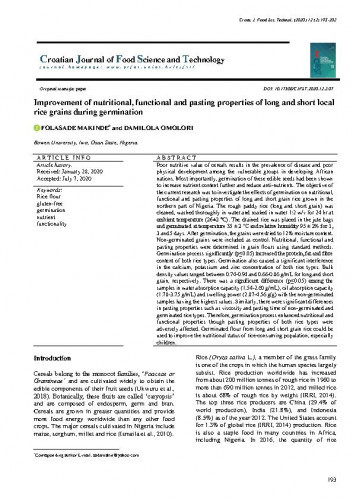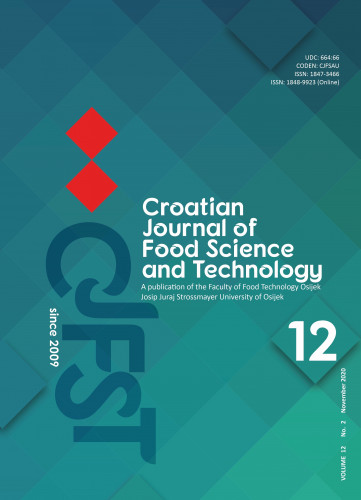Poor nutritive value of cereals results in the prevalence of disease and poor physical development among the vulnerable groups in developing African nations. Most importantly, germination of these edible seeds had been shown to increase nutrient content further and reduce anti-nutrients. The objective of the current research was to investigate the effects of germination on nutritional, functional and pasting properties of long and short grain rice grown in the northern part of Nigeria. The rough paddy rice (long and short grain) was cleaned, washed thoroughly in water and soaked in water 1:2 w/v for 24 hr at ambient temperature (26±2 oC). The drained rice was placed in the jute bags and germinated at temperature 35 ± 2 °C and relative humidity 95 ± 2% for 1, 3 and 5 days. After germination, the grains were dried to 12% moisture content. Non-germinated grains were included as control. Nutritional, functional and pasting properties were determined in grain flours using standard methods. Germination process significantly (p≤0.05) increased the protein, fat and fibre content of both rice types. Germination also caused a significant interference in the calcium, potassium and zinc concentration of both rice types. Bulk density values ranged between 0.74-0.94 and 0.66-0.86 g/mL for long and short grain, respectively. There was a significant difference (p≤0.05) among the samples in water absorption capacity (1.54-2.60 g/mL), oil absorption capacity (1.78-3.75 g/mL) and swelling power (2.87-4.56 g/g) with the non-germinated samples having the highest values. Similarly, there were significant differences in pasting properties such as viscosity and pasting time of non-germinated and germinated rice types. Therefore, germination process enhanced nutritional and functional properties though pasting properties of both rice types were adversely affected.
Sažetak

 Croatian journal of food science and technology : a publication of the Faculty of Food Technology Osijek : 12,2(2020) / editor-in-chief Jurislav Babić.
Croatian journal of food science and technology : a publication of the Faculty of Food Technology Osijek : 12,2(2020) / editor-in-chief Jurislav Babić.